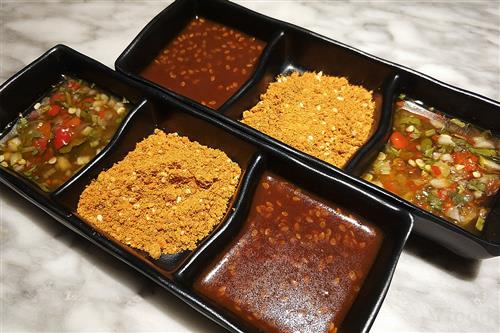Sweet and sour salty, salty and salty, vinegar and vinegar tea, these common daily seasonings for our adults are very important when added to your baby. How old can you add? How much to add? Let's take a look, these homely seasonings, do you use your baby right?
In the supplementary food for the baby, we generally recommend not adding any seasonings, but many elderly people will oppose saying, "If you don't have a taste of food, you wouldn't like it. Why do you give it to children?" Can you add seasoning to him? Experts said that infants and young children have different needs for salt, vinegar, soy sauce and other seasonings at different stages of growth and development. Following the addition of “rulesâ€, they can not only ensure their healthy development, but also effectively exercise their taste development.

Oil: can eat vegetable oil after 6 months
The growth of the baby needs fat, and the smaller the baby, the greater the demand for fat, because they need enough fat to provide the heat needed for growth. However, the baby can use enough breast milk or formula to get enough fat 6 months ago, so the baby does not need to add “oil†within 6 months.
Liu Changwei, a nutrition doctor at Children’s Hospital of Nanjing, suggested that as a cooking oil for children, animal oils with high saturated fatty acids and low levels of other fat-soluble vitamins should be avoided. Soybean oil, canola oil, and corn oil can be selected. Such as sunflower oil, etc., can also use olive oil. Dietary guidelines for Chinese residents suggest that the daily intake of vegetable oil for young children is 5-10g for 0.5-1 year olds, 20-25g for 1-3 year olds and 25-30g for ages 3 to 3 years old.
Salt: no salt added within 1 year
For babies, a high-salt diet is very dangerous. Because the high-salt diet easily causes respiratory diseases, it also affects children's absorption of trace elements, resulting in lack of trace elements in the baby, high-salt diet also affects the development of the kidneys and heart, causing high blood pressure and other diseases. Therefore, the baby's diet must strictly control the intake of salt.
There is no need to add salt within 1 year of age: Your baby should begin to add complementary food after 6 months, but the salt found in natural foods can meet your baby's needs, so there is no need for additional salt within 1 year of age.
Eat 1-3 as little salt as possible: According to the latest edition of the reference intake, infants 1-3 years old need 700mg sodium (equivalent to 1.8g salt) per day, but usually enough to get enough sodium from food. , such as milk, staple foods, meat, green leafy vegetables, fruits, etc., so the baby should eat as little as possible before the age of 3.
3-6 years old eats no more than 2g of salt per day: Children aged 3-6 need about 900mg of sodium (equivalent to 2.3g of salt) per day. Apart from the sodium contained in the food itself, there is not much sodium that must be obtained through salt. Therefore, 3-6-year-old baby should eat no more than 2g of salt each day.
Eating 3-5g of salt daily for children over 6 years old: The child can increase salt intake appropriately after 6 years of age, but it is best to control within 3-5g.
It should be noted that when eating salt for your baby, do not use adults' taste as a standard. Adults' sensitivity to salt is significantly lower than that of children. Seasoning according to adult tastes can easily lead to excessive salt intake. 》》 Related reading: Nutrition experts: In the end infants and young children how much salt to eat?
Sugar: no more than 0.5g per kilogram of body weight per day
Eating more sugar will damage your baby's teeth, and it will also reduce your baby's sensitivity to sweetness, while ignoring other tastes, causing anorexia, picky eaters and other bad eating habits. Therefore, to control your baby's sugar intake from a small age, the amount of sugar consumed per day does not exceed 0.5g per kilogram of body weight. 39 Parenting Reminders Parents must pay attention to children as little as possible to eat sugar, drink less sweet drinks, eat less baked goods, try to avoid sugar in their daily diet, and pay attention to eating sweets before and after eating and before bedtime.
Coral Fungus,Coral Mushroom,Coral Fungus Edible,Red Coral Fungus
Guangyun Agricultural Biotechnology (Jiangsu) Co., Ltd , https://www.7-mushrooms.com